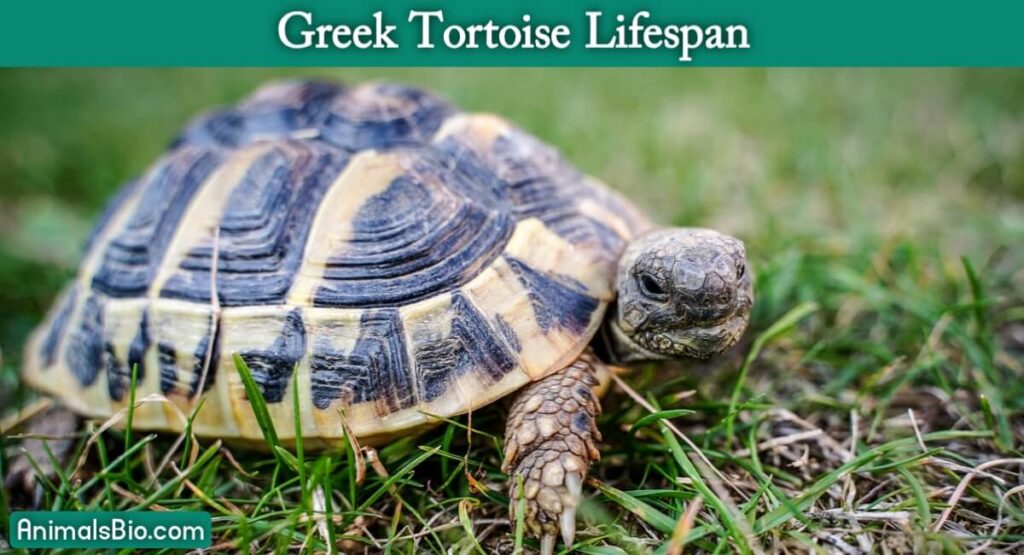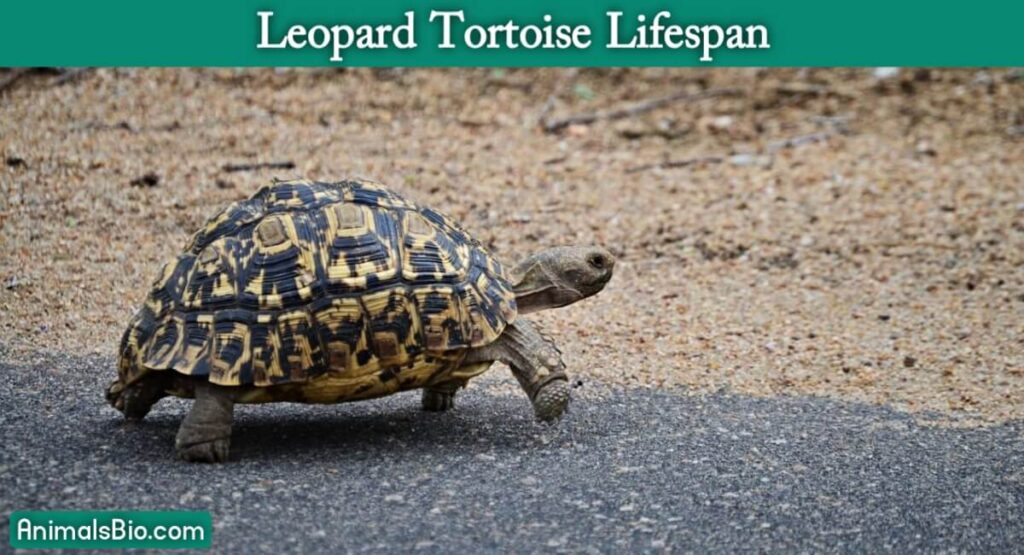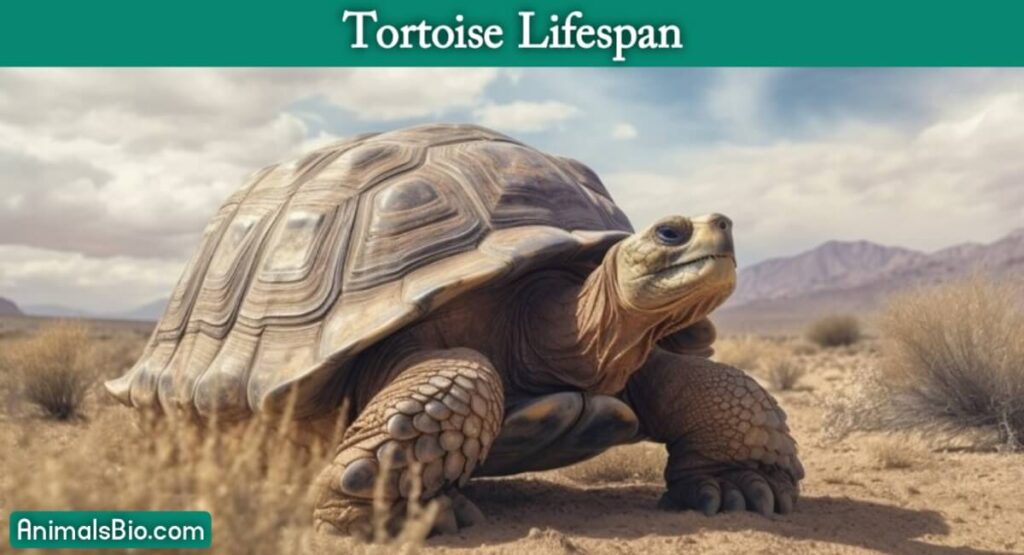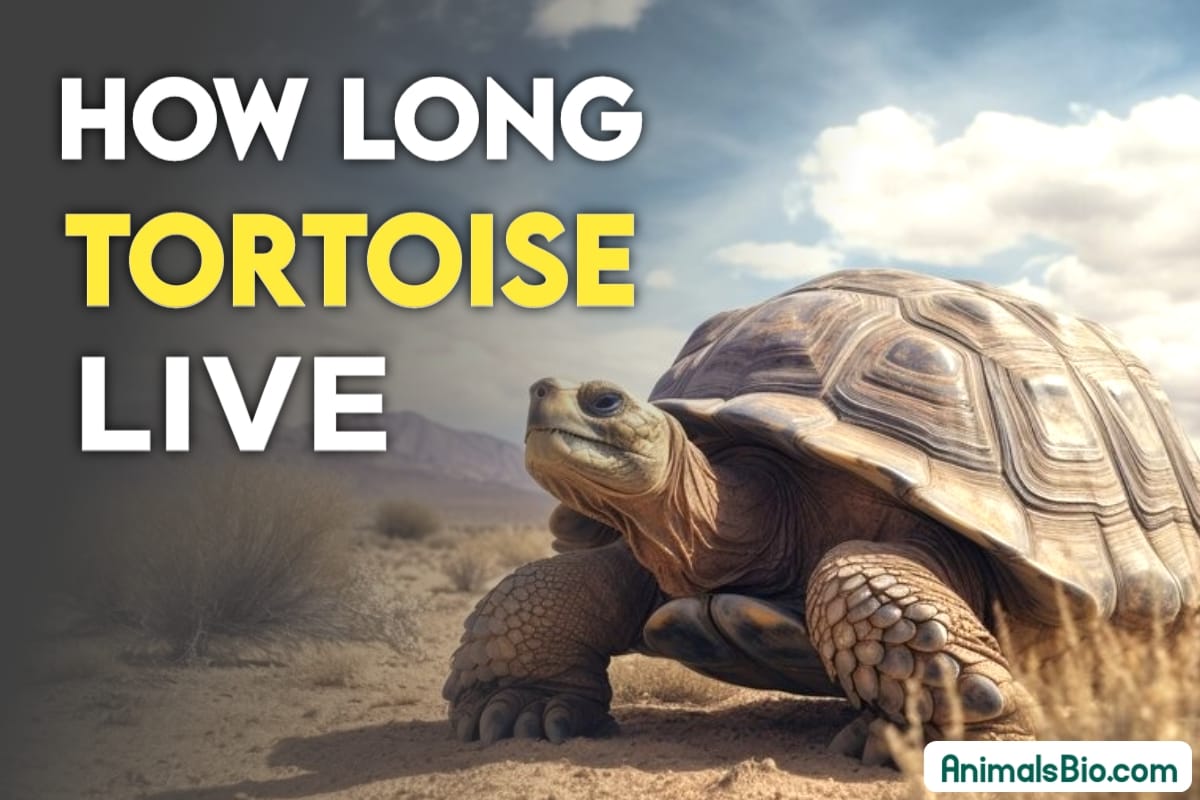Tortoises are animals that move slowly and steadily. They make us feel like time doesn’t matter much. These creatures have been around for millions of years, seeing many civilizations come and go. One interesting thing about tortoises is that they live for a really long time.
There are different kinds of tortoises, from small ones like the Greek tortoise to huge ones like the Galapagos tortoise. They live longer than many other animals. In this article, we’ll talk about why tortoises live so long and why they’re so fascinating to us.
How long can a tortoise live
Tortoises are known for their remarkable longevity. Many species of tortoises can live for several decades, and some can even live for over a century. The lifespan of a tortoise can vary depending on factors such as species, habitat, diet, and healthcare. Here are some approximate lifespans for commonly kept tortoise species:
Greek Tortoise (Testudo graeca):

Greek Tortoises, also known as Testudo graeca, can lives for a really long time. It can live more than 125 years, and some people say it might even live up to 200 years, though that hasn’t been confirmed. These tortoises are small and are often kept as pets. They need proper care and a good habitat to live happily.
Greek Tortoises like to eat vegetables and plants. Because they can live for so long, they can become beloved companions for many years.
It’s important for people who have Greek Tortoises as pets to understand their needs and take good care of them to ensure they live a healthy and happy life for as long as possible.
Russian Tortoise (Agrionemys horsfieldii):
Russian Tortoises, also called Agrionemys horsfieldii, can live between 50 to 100 years. These tortoises are small and popular as pets. They need a cozy habitat and enjoy munching on greens. Owners should care for them well to ensure their happiness and health throughout their potentially long lives.
Related Article : Russian Tortoise – Lifespan, Habitat, Diet, Interesting Facts
Hermann’s Tortoise (Testudo hermanni):
Hermann’s Tortoises, scientifically known as Testudo hermanni, typically live between 50 to 100 years. These tortoises, often kept as pets, require proper care and a suitable habitat. They enjoy a diet of vegetables and plants. With good care, they can become cherished companions for many years.
Sulcata Tortoise (Centrochelys sulcata):
Sulcata Tortoises, scientifically known as Centrochelys sulcata, have a lifespan of 70 to 100 years. These tortoises are sizable and need spacious enclosures. They primarily eat grasses and require a warm habitat. With proper care, they can be long-term companions, living for several decades.
Leopard Tortoise (Stigmochelys pardalis):

Leopard Tortoises, scientifically named Stigmochelys pardalis, can live between 80 to 100 years. These tortoises, distinguished by their beautiful shell patterns, are commonly kept as pets.
They thrive on a diet of leafy greens and need a warm habitat. With proper care, they can be cherished companions for many decades.
African Spurred Tortoise (Centrochelys sulcata):
The African Spurred Tortoise, also known as Centrochelys sulcata, boasts a lifespan of 50 to 150 years. These tortoises, known for their impressive size, require spacious enclosures and a diet rich in vegetation. With proper care and attention, they can be lifelong companions, spanning several generations.
Galapagos Tortoise (Chelonoidis nigra)
The Galapagos Tortoise, scientifically named Chelonoidis nigra, is renowned for its extraordinary lifespan, ranging from 100 to over 200 years. These iconic tortoises, native to the Galapagos Islands, require large habitats and a diverse diet.
With their longevity, they serve as enduring symbols of the natural world’s resilience and beauty.
Ancient Guardians of Time
Tortoises have been around for eons, with fossils dating back to the time of the dinosaurs. Their evolution has been shaped by millennia of environmental changes, leading to the diverse array of species we see today.
Despite their slow metabolism and leisurely lifestyle, tortoises have thrived in various habitats, from lush rainforests to arid deserts. Their ability to adapt to different environments has undoubtedly contributed to their longevity.
Suggested Article : Tiger Shark Lifespan
Understanding Lifespan

The lifespan of a tortoise can vary greatly depending on factors such as species, habitat, and care. While some species may only live for a few decades, others can surpass the century mark.
Among the longest-living tortoises are the Galapagos tortoises, whose longevity has astonished scientists and conservationists alike. These gentle giants can live for over 200 years, making them some of the oldest living vertebrates on the planet.
Factors Influencing Longevity
Several factors contribute to the longevity of tortoises. One of the key factors is their slow metabolism, which allows them to conserve energy and withstand periods of scarcity. Additionally, tortoises have a remarkable ability to store water and nutrients, enabling them to survive in harsh environments where food and water are scarce.
Another factor is their sturdy shell, which provides protection against predators and environmental hazards. The shell also serves as a reservoir for calcium, essential for maintaining bone health and longevity. Proper nutrition is crucial for tortoises, with a diet rich in leafy greens, vegetables, and occasional fruits providing the essential vitamins and minerals they need to thrive.
Furthermore, the quality of care and habitat provided to tortoises can significantly impact their longevity. Tortoises kept in captivity require spacious enclosures with access to sunlight, proper heating, and a varied diet to ensure their well-being. In contrast, tortoises in the wild benefit from natural foraging opportunities and a diverse range of habitats, allowing them to exhibit their natural behaviors and maintain their health.
Suggested Article : Why do Owls Hoot at Night ?
Lessons from the Galapagos
The Galapagos Islands, famous for their unique biodiversity and the inspiration for Charles Darwin’s theory of evolution, are home to several species of giant tortoises. These iconic creatures have become emblematic of the archipelago’s conservation efforts, with dedicated programs aimed at protecting and preserving their habitat.
One of the most renowned Galapagos tortoises was Lonesome George, the last known individual of the Pinta Island tortoise species. Despite numerous conservation efforts, Lonesome George passed away in 2012, highlighting the fragility of endangered species and the importance of conservation initiatives.
The legacy of Lonesome George serves as a poignant reminder of the impact humans have on the environment and the urgent need to protect endangered species and their habitats. Through sustainable practices and conservation efforts, we can ensure that future generations have the opportunity to marvel at the timeless wonders of tortoises.
Conclusion
Tortoises, with their ancient lineage and remarkable longevity, continue to captivate our imagination and inspire awe. From the rocky shores of the Galapagos to the sandy deserts of Africa, these resilient reptiles remind us of the enduring power of life.
As stewards of the Earth, it is our responsibility to protect and preserve the habitats of these magnificent creatures, ensuring that they continue to thrive for generations to come. In doing so, we honor not only the legacy of tortoises but also the rich tapestry of life that sustains our planet.
Source
Wikipedia Org
Frequently Asked Questions (FAQ)
How Old is the Oldest Tortoise ?
The oldest tortoise on record was Jonathan, an Aldabra giant tortoise, who lived to be approximately 187 years old. Born around 1832, Jonathan resided on the island of Saint Helena and became a beloved icon, symbolizing longevity and resilience in the animal kingdom.
What does a Tortoise Eat ?
Tortoises typically eat a diet consisting mainly of leafy greens, vegetables, and occasional fruits. Some common foods include lettuce, kale, dandelion greens, carrots, squash, and bell peppers. It’s essential to provide a varied diet rich in calcium and vitamins to ensure their health and well-being.
Why Tortoise have Long Lifespan ?
Tortoises have long lifespans due to several factors. Their slow metabolism allows them to conserve energy, and their ability to store water and nutrients helps them survive in harsh conditions.
Additionally, their sturdy shells provide protection from predators and environmental hazards, contributing to their longevity.
Where do Tortoises Live ?
Tortoises are found in various habitats around the world, including deserts, grasslands, forests, and scrublands. Different species have adapted to specific environments, such as the Galapagos tortoise living on islands and the African spurred tortoise inhabiting arid regions. They can be found on almost every continent except Antarctica.
What Vegetables can Tortoises Eat
Tortoises can eat a variety of vegetables, including dark leafy greens like kale and spinach, as well as carrots, squash, bell peppers, and cucumbers. They also enjoy occasional treats like tomatoes and fruits such as strawberries and bananas. Variety is key to providing a balanced diet for tortoises.
How Long Can a Tortoise Live ?
Tortoises are known for their remarkable longevity, with lifespans varying depending on species. On average, they can live between 50 to over 100 years. Some species, like the Galapagos tortoise, can even surpass 200 years. Proper care and a suitable environment are crucial for their longevity.






